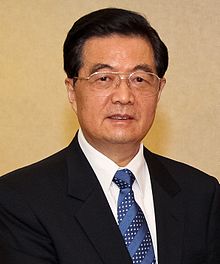Former Chinese president Hu Jintao faces charges in Spain over alleged genocide and human rights abuses in Tibet. The claim, brought to Spain’s National Court (Audiencia Nacional) by the Non Government Organisation Comite de Apoyo al Tibet, was originally rejected before the decision was overturned in the court of appeals on October 11.
Jintao will be charged with human rights abuses committed against Tibetans over the course of his ten year presidency. The court will also examine a period of Martial Law imposed after anti-government protests in Lhasa, the Tibetan Capital, in 1989. The demonstrations took place during his term as Party Regional Committee Secretary of the Tibetan Autonomous Region.
The case will be tried under a legal principle known as Universal Jurisdiction. This principle holds that crimes against humanity, such as torture, terrorism and genocide, may be tried on foreign soil, irrespective of national jurisdictional boundaries.
A Foreign Ministry Spokesperson for China, Hau Chunying, has denounced the proceedings, dubbing the case an attempt “to destroy the relations between China and the relevant country and to attack China’s government”.
The court’s decision to try the case arrives days before the United Nations Universal Periodic Review, which will take place in Geneva on October 22. The review places China’s Human Rights policy under international scrutiny, as their record is assessed by other nations.





 Print
Print Email
Email